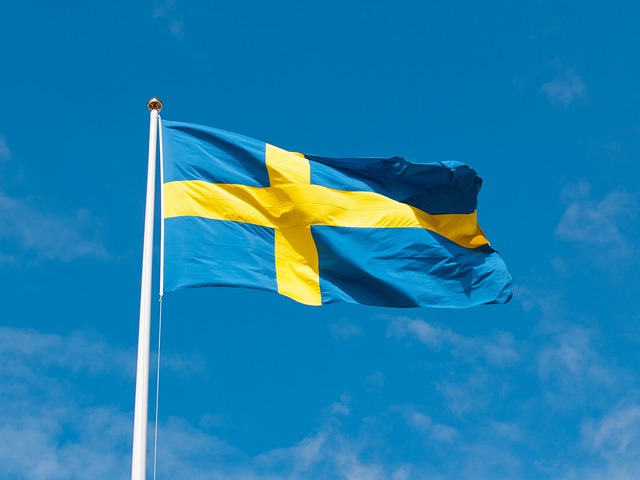By Prof. Dr İLTER TURAN
Now that the elections in Türkiye are behind us, there seems to be a flurry of activity regarding the completion of the parliamentary vote in order that Sweden may become a member of NATO by mid-July in Vilnius. The NATO Secretary General Stoltenberg and the former Swedish PM Bildt known to have a broad circle of friends in Türkiye came in to persuade President Erdoğan that Sweden had lived up to its promises and it was now Türkiye’s turn to deliver. The US, as the leading force in NATO, has insisted that the sale of F-16s to Türkiye and Sweden’s accession to NATO are unrelated. There is no doubt, however, that many American politicians establish a link between them, suggesting that the completion of Sweden’s accession to NATO, would clearly facilitate the US Senate approval for authorizing the sale. It is interesting that a campaign to get Hungary’s approval, another impediment to Sweden’s membership, receives scant attention. Apparently, once the Turkish hurdle is overcome, Hungary will be easy to persuade.

Recently, Turkish papers have reported that there will be a massive demonstration against Türkiye in Stockholm. Those reporting the event often judge that the occurrence of such activity constitutes sufficient evidence that Sweden is not willing to curb anti-Türkiye activities. This line of criticism is hardly justified. In any decent democratic society, it is within the right of citizens to demonstrate against what is happening in another country, its policies or the policies of their own government toward that country. To be sure, Sweden is not the only NATO country where there are occasional public demonstrations against Türkiye. It is understandable that the Turkish government does not like such manifestations, but it should be equally understandable that in democratic societies, the citizens enjoy freedom of expression. The job of the government is not to prevent them but to ensure that they are conducted peacefully. If Türkiye claims to be a democracy, its government may express its displeasure but not expect another democratic government to restrict the freedom of expression.
Jens Stoltenberg has pointed to another aspect of anti-Türkiye demonstrations, reminding the Turkish leader that these are guided by cadres that are not only unfavorably disposed toward Türkiye but also against Sweden’s leaving its neutral status and joining NATO. If Türkiye stands in the way of Sweden’s accession, the perpetrators of such demonstrations would be killing at least two birds or possibly more with one stone. On the one hand, they would prevent Sweden from joining the alliance but on the other hand, they would be successful in undermining the overall positive relations between Türkiye and Sweden. Another fringe benefit would be for Türkiye’s relations with its other allies to go sour. To make the long story short, anti-Türkiye demonstrations should be dropped from the talks unless there is clear evidence that it is the Swedish government that is the organizer and the main driving force behind these public manifestations. That, however, does not seem to be the case.
Türkiye’s opposition to its membership has in fact forced the Swedish government to review its anti-terror legislation and make changes in its constitution and laws that empower it to deal more effectively with the possibility that the country might serve as a base for terrorists that carry out their activities in another country or part of the world. It is true that the changes are too recent to make a reliable judgment as regards whether Sweden will be effective in preventing the continuation of the hospitable environment that the PKK has found there. Türkiye must certainly maintain its vigilant posture on this question even if Sweden becomes a NATO member. In fact, NATO councils may constitute another forum where criticism against Sweden may be aired. Keeping Sweden out of NATO grants it greater freedom to tolerate activities unfriendly to Türkiye.
It must also be remembered that not allowing Sweden accede to NATO membership will produce two dysfunctional outcomes for Türkiye and its relations with its friends and allies. To begin with, negative insistence will constitute additional difficulties between Türkiye and its NATO partners, reenforcing the relative isolation Türkiye is already experiencing in these circles. Second, NATO will develop a multitude of ways and instruments to include Sweden as a partner in its activities. The deprivations Sweden may suffer from not being a member may get less and less over time. Simultaneously, Türkiye may be kept outside many joint activities that NATO members conduct within cooperative frameworks that have been developed to include Sweden in security and defense arrangements.
Conclusion: The conditions that led Türkiye to question Swedish membership have changed sufficiently for Türkiye to take the chance of facilitating Sweden’s accession. This is, as indicated, taking a chance. Standing in the way if accession is, however, taking an even bigger chance. With major security issues around Türkiye these days, this may not be a good time to take bigger chances.
By Prof. Dr İLTER TURAN
